
Web Scalability for Startup Engineers
Artur Ejsmont
4.8 on Amazon
6 HN comments
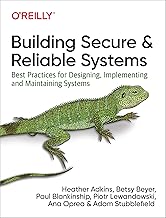
Building Secure and Reliable Systems: Best Practices for Designing, Implementing, and Maintaining Systems
Heather Adkins, Betsy Beyer , et al.
4.7 on Amazon
6 HN comments
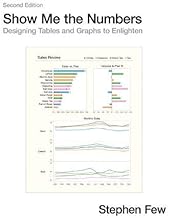
Show Me the Numbers: Designing Tables and Graphs to Enlighten
Stephen Few
4.5 on Amazon
6 HN comments

Database Internals: A Deep Dive into How Distributed Data Systems Work
Alex Petrov
4.7 on Amazon
6 HN comments

Whatever It Takes: Master the Habits to Transform Your Business, Relationships, and Life
Brandon Bornancin
4.8 on Amazon
6 HN comments

Kubernetes: Up and Running: Dive into the Future of Infrastructure
Brendan Burns , Joe Beda, et al.
4.6 on Amazon
6 HN comments

Python for Kids: A Playful Introduction to Programming
Jason R. Briggs
4.6 on Amazon
6 HN comments

The Phoenix Project (A Novel About IT, DevOps, and Helping Your Business Win)
Gene Kim
4.7 on Amazon
6 HN comments

Terraform: Up & Running: Writing Infrastructure as Code
Yevgeniy Brikman
4.6 on Amazon
6 HN comments

A World Without Email: Reimagining Work in an Age of Communication Overload
Cal Newport, Kevin R. Free, et al.
4.5 on Amazon
5 HN comments

Discovering Statistics Using R
Andy Field, Jeremy Miles , et al.
4.5 on Amazon
5 HN comments
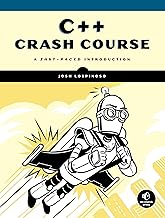
C++ Crash Course: A Fast-Paced Introduction
Josh Lospinoso
4.7 on Amazon
5 HN comments

Irresistible: The Rise of Addictive Technology and the Business of Keeping Us Hooked
Adam Alter and Penguin Audio
4.6 on Amazon
5 HN comments
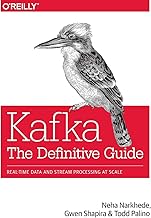
Kafka: The Definitive Guide: Real-Time Data and Stream Processing at Scale
Neha Narkhede , Gwen Shapira, et al.
4.4 on Amazon
5 HN comments
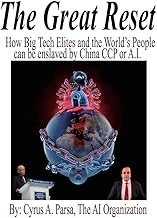
The Great Reset: How Big Tech Elites and the World's People Can Be Enslaved by China CCP or A.I.
Cyrus Parsa and The AI Organization
4.5 on Amazon
5 HN comments
aokijionNov 19, 2020
blumomoonMay 29, 2021
Klaus Schwab, head of "World Economic Forum" and author of "The Great Reset" [0]: "You'll own nothing and you will be happy" [1]
[0] https://www.amazon.com/COVID-19-Great-Reset-Klaus-Schwab/dp/...
[1] https://www.youtube.com/watch?v=bEQcyIGH_vQ
coecoventuresonAug 26, 2012
I ran an experiment with one of my friends who lived in swamp sprawl built over the everglades where I used to fish as a kid. When I was traveling he'd stay at my house in a walkable neighborhood. It ruined him. He was more productive, had more fun, went out more often, and was much more relaxed than when he was back at the swamp. Living it versus talking about it is a real convincer.
Richard Florida talks about the Creative Class and the Great Reset (both excellent books, though I don't agree 100% with his prescriptions) which dovetails with PG's essay Cities and Ambition.
One area where I disagree is the choice of vehicle. A ten year old hatchback is less than ideal. I twenty year old Porsche, on the other hand, is perfect.
kargdtonSep 4, 2010
lkrubneronNov 24, 2010
http://www.amazon.com/Great-Reset-Working-Post-Crash-Prosper...
Florida offers compelling evidence that the 1930s were the most innovative decade of the 20th century. Many new business practices were invented at this time. And this is when Hewlett Packard got going, and with it, what later came to be called "Silicon Valley".
The 1930s were also, at the same time, the worst economic disaster in the history of the USA. So an era can be both disastrous and very innovative. Those are not opposites. To say (as Steve Blank does) that we are at the beginning of an entrepreneurial revolution is inspiring. But he should be able to see that we can have both an entrepreneurial revolution and an economic disaster. Both are possible at the time.
This can be shown with a very simple graph. I will post that later.